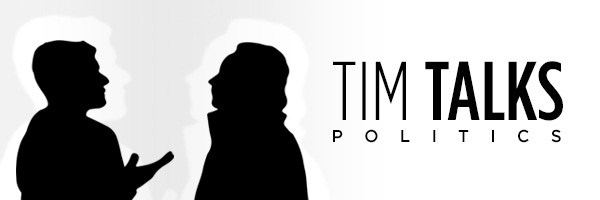Tim Talks Politics - The Weekly Brief, January 25, 2019

The Weekly Brief - January 25, 2019
The Buzzfeed Bomb
Pew Research reports that a massive 75% of Republicans believe the news media doesn’t understand them, and 58% of American adults feel similarly. Why is that?
Perhaps the multiple media misfires over the last couple of weeks is a contributing factor to that. After Buzzfeed broke a story, from the usual unnamed sources, alleging that President Trump had instructed Michael Cohen to lie to Congress, the Mueller investigation publicly reprimanded the media company.
And even though it backs the story, the very anti-Trump Daily Kos acknowledges the story is anything but clear. National Review argues that this is a case study in the pitfalls of secrecy in investigative reporting. Not quite an agreement between the liberal Daily Kos and conservative National Review, but the two seem to agree that there’s a problem here when a news company cannot help in clarifying a story.
In an interesting twist, even as the Buzzfeed bomb continued to fuel speculation, Buzzfeed announced it would be laying off 15% of its staff, apparently for financial reasons. Axios reports that this is because Buzzfeed has had difficulty raising revenue, which may in part have driven the publishing of the story as a way of regaining relevance a la the Washington Post and Watergate. That’s speculation on my part, but it’s a comparison hard to ignore.
The Change Congress?
And speaking of speculation, it continues to run rampant as the newly minted Democratic House continues to place many of it’s newcomers in key committees, including firebrand Alexandria Ocasio-Cortez on the oversight committee and pro-Palestine Ilhan Omar on the foreign affairs committee.
It clearly signals that this is not business as usual…. But is it? FiveThirtyEight reports that, actually, not much has changed in the operations, advocacy and agenda among House Democrats despite the injection of so many freshmen reps. The Hill more or less confirms it’s partisan politics as usual when it reported on a the House rejecting a GOP-sponsored bill to pay workers while the government is still closed.
We’re Still Here!
But news stories about the news are a little narcissistic, and partisan politics is hardly news anymore. The far more exciting stuff this week happened in many locales around the world that require attention.
Asia
War on the Rocks runs an essay on improving US-India relations as being a significant success for the Trump administration, especially given the shared interests of checking China.
However, Brookings reports that economic growth in the world’s three largest countries is masking deep stresses in economics, politics and society.
Rand Corp. does not cite the Brookings study directly, but questions the hypothesis of a China-US confrontation, and I wonder if it could be accurate given that both countries have internal issues they’re trying to confront.
Africa
There are three significant stories to be tracking on the African continent.
The shutdown of Libya’s largest oil field could mean collapsing the fragile economic gains made by that country, which can only exacerbate existing east-west divisions.
Nigeria has a presidential election this year, and as Africa’s largest country, it will be a bellwether for democratic prospects on the continent, especially as leaders age, younger populations find their voices and power transitions appear on the horizon. In light of that context, growing sectarian strife in Nigeria is troubling.
Finally, the ebola epidemic in the Democratic Republic of Congo is not slowing down. While it hasn’t spread much further regionally or internationally, the suffering of that country from war and pestilence is heartbreaking.
Venezuela
In a move backed by the Organization of American States, its South American neighbors, and, critically, by the US, Venezuela’s National Assembly Leader Juan Guaido declared the Assembly the only legitimate authority in Venezuela.
The recognition of Guaido and the Assembly by pretty much every regional and international power that counts deeply undercuts the Maduro regime that declared itself victorious in a broadly rejected election a couple weeks ago.
Many observers in the US praised the move as one of the most substantive foreign policy moves by the Trump administration, but the American Conservative critiques the move as something of a siren song for American meddling in the affairs of another country. Stay tuned. Venezuela has been in crisis for years now, and it may be hitting critical mass.
Trump-Kim, Part 2
Get ready for Trump-Kim, the Sequel. Asia Times reports that the UN Security Council is quietly easing sanctions on humanitarian aid to North Korea ahead of an upcoming summit likely scheduled for February.
While talks are better than rhetorical sparring over the comparative size of nuclear forces, the Council on Foreign Relations voices concerns over the Trump team’s readiness for the negotiations, which may be far more detailed than the last summit, which was more of an ice breaker.
But There’s Good News!
Lest you think that the news from around the world is anything but good, Axios reports that 2018 was actually a really good year for the world on a number of fronts.
Additionally, Our World in Data reports that child deaths before the age of 5 have been halved since 1990. Not an an accomplishment to frown at!


